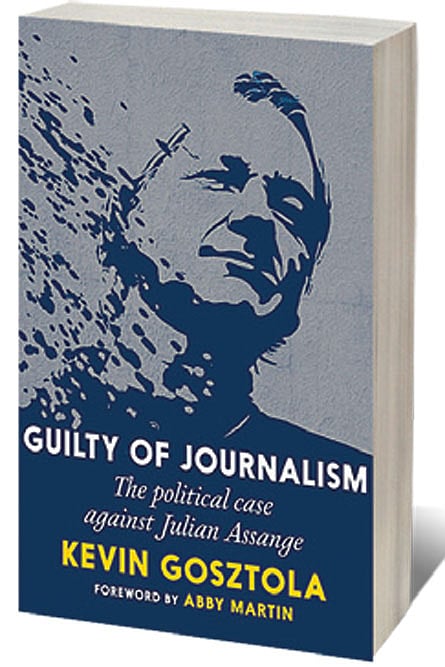The Good Fight

TEN YEARS AGO, independent news outlet Democracy Now! interviewed the then 25-year-old Kevin Gosztola for his views on whistle-blower and former US soldier Bradley Manning’s trial for sharing with WikiLeaks nearly 7,50,000 documents. These included classified military files, for which the publisher of WikiLeaks, Julian Assange, is on trial. Gosztola was then described as a civil liberties blogger at Firedoglake, a collaborative online news space, and was among the handful of journalists who covered the Manning trial daily.
Since then, Gosztola has acquired a prominent status as a journalist taking up the cause of whistle-blowers and publishers whose crime was journalism. As managing editor of Shadowproof, a reader-supported online news site, Gosztola went on to report extensively on Assange’s extradition hearings live from Woolwich Court in London, not far from Her Majesty’s Prison Belmarsh, where Assange is imprisoned. The Australian publisher of WikiLeaks was kidnapped from the Ecuadorian embassy in 2019 where he had taken sanctuary since 2012 fearing a show trial, and extradition to the US—where he expects no justice.
The Trial of Julian Assange (2022), by Nils Melzer, a former United Nations Special Rapporteur on Torture, had argued the key reason why the US was after Assange—because WikiLeaks published in 2010 details of American war crimes. The worst to happen for the US was the ‘Collateral Murder’ video, which showed what happened on July 12, 2007 in a residential area of Baghdad, Iraq, where US soldiers indiscriminately fired at and killed people, including a Reuters staff member and his potential rescuers.
Gosztola goes much further in Guilty of Journalism. He not only dissects the injustice meted out to Assange but also traces the draconian provisions of the Espionage Act. In the process, he exposes the media and government institutions that perpetuate lies while maintaining a veneer of impartiality.
It's the Pits!
13 Feb 2026 - Vol 04 | Issue 58
The state of Indian cities
In the foreword, American journalist Abby Martin writes, “Years after the liberal establishment—who once heaped praise upon Assange— abandoned him in droves, Kevin has not relented in his dedication to the case.” The perception created—to the extent that it was widely touted as truth—was that Assange had been a Russian agent since 2016. However, Assange’s indictment and extradition trial has nothing to do with the 2016 election, but, as Gosztola lays bare through testimonies and investigation, has everything to do with the publishing of war crimes.
Some chapters are revelations in that Gosztola details how a private security agency named Undercover Global spied on Assange who was living in the Ecuador embassy. Another chapter investigates the history of whistle-blowers. Another one examines the testimonies submitted in the extradition trial from journalists who had worked with Assange, who, they aver, stuck to “standard news gathering practices”. Chapter 12 is worthy of a re-read because it looks at how certain news outlets, including The New York Times, CNN, The Guardian, and others “aided and abetted” the US prosecution against the WikiLeaks publisher.
The opening line of the book reads: “Julian Assange is a journalist.”
Why make that statement? It is important because the whole narrative built by the US administration with the help of “prestige media” is that Assange is not a journalist. What then, if not journalism, is the courage to publish incriminating documents that very few editors would have the guts to publish?
In Ithaka, a film made on Assange’s family’s fight to save him, his father John Shipton is also asked this question. He lists the journalistic awards Assange had won.
This book by Gosztola, which tells the story of how the FBI targeted Assange, carries, in the end, 30 WikiLeaks files the “US government doesn’t want you to read”. It lists coups, foreign policy atrocities, human rights abuses, spying on leaders of other nations, and so on.
This is journalism.

